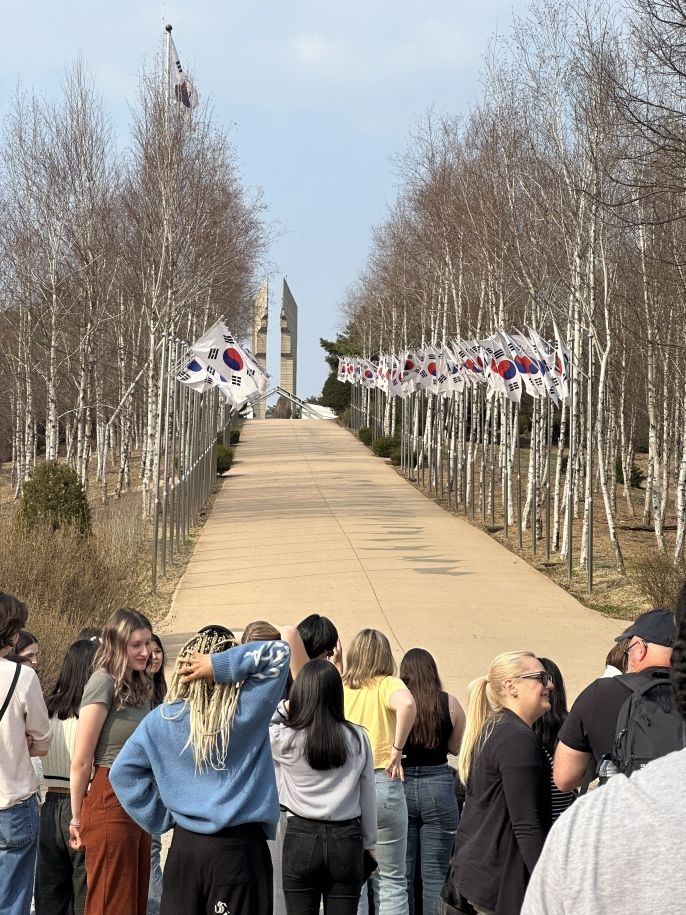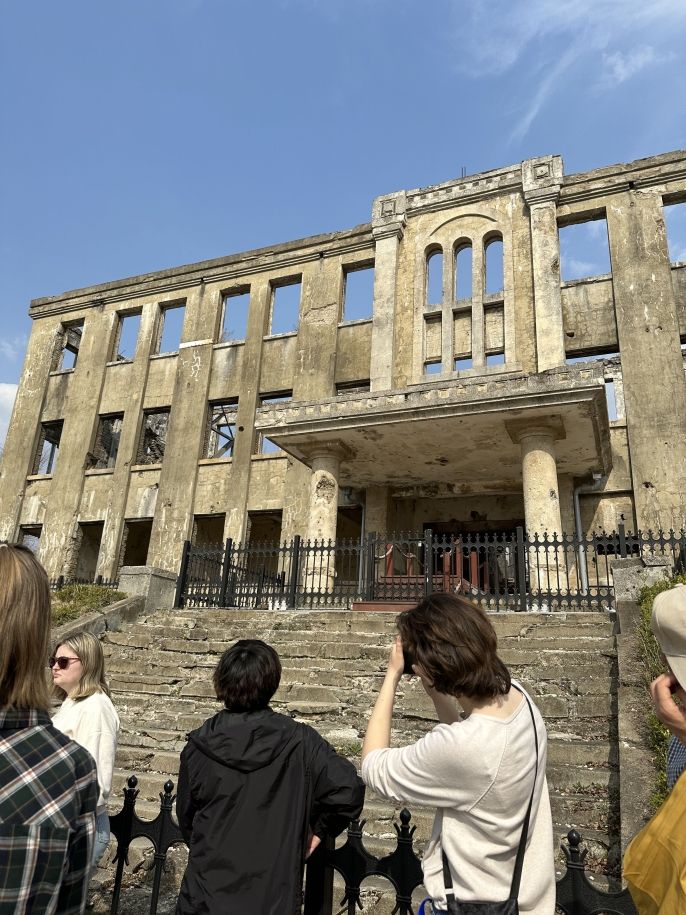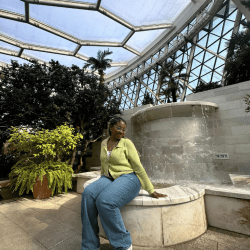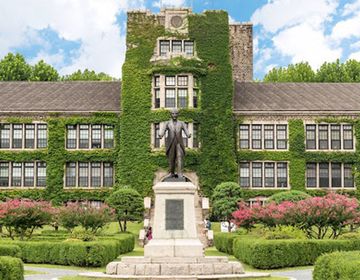Visiting the Demilitarized Zone in South Korea
To be honest, I was a bit nervous about visiting the DMZ. I think the ways in which North Korea is portrayed in the US media and media in general, tend to portray the country as dangerous, cynical, and inhumane. I think that is due to the lack of knowledge known about North Korea. But during my studies here in Korea, I have learned so much information about North Korea, North Koreans, and the division between North and South Korea. One fact that I found most interesting is that the separation of the Korean peninsula was due to the Cold War between the Soviet Union and the United States, thus, it occurred without the involvement of Korean society. Thus, North Korean society is heavily influenced by the Soviet Union's communist regime whereas the US culture and political ideologies (anti-communist) influenced a democratic society in South Korea. The US and the Soviet Union were supposed to leave and let the Korean society figure out how to handle the dispute but due to their own objectives and political reasons, the cold war began shortly after. This separation ultimately led to the separation of many families and friends, but since the ulterior motives of other nations interfered, North Korea and South Korea still remain impacted by the actions of the US and Soviet Union today.
On the trip visiting the demilitarized zone (DMZ), I was able to learn about the daily lives of Korean military soldiers. One of the guides of the tour spoke about the long distances soldiers walked in order to get from post to post. He mentioned how the conditions worsen depending on the season; winter and summer tend to be the seasons that created many challenges for soldiers because of the extreme weather and weather conditions. One of the CIEE Seoul staff members mentioned how he had to sleep on a wooden, hard, stiff ground with around 3 - 4 other soldiers. However, soldiers now have their own beds. Another tour guide, who served as a US military soldier stationed in Korea, shared how there were also suicides within the army as well, which I was shocked to learn about. At times I feel, social issues within the military are often unheard of and not made known to the public. Thus, it made me wonder more about Korean soldiers' mental health and well-being in the military. Are there Korean men who don't want to serve in the military? Why and when did Korea create the law that all Korean men must serve in the military? Additionally, the tour guide spoke about how Korea was thinking about having both males and females enlist in the army due to the lack of male population in the military which is a result of the declining birth rate within Korea. He mentioned that some Korean men feel some resentment about having to give away 2 years of their lives to serve in the military, he explains how some men feel that they could be making achievements within their careers. In this sense, they feel disadvantaged, especially living in a competitive and demanding society.
This trip was very insightful because I had limited knowledge about North Korea prior to visiting the DMZ. It inspired my desire to learn more about how colonization, imperialism, and nationalism have an impact on Korean society today. It makes me wonder whether the separation between North and South Korea still revolves around political issues involving the US and other nations. I wonder if North and South Korea will ever be able to reunite, and if so, what would that look like?
Even though K-pop and K-dramas were my first introduction to South Korea, I am glad that I get the opportunity to learn more about the history of the nation and learn about how South Korea evolved as a nation. I think that it's very important for anyone traveling to Korea, to learn about the Korean culture, tradition, history, and heritage. It allows one to witness the cultural values within Korean society and as a student studying abroad in South Korea, I am deeply surprised about how much I have learned about the country that isn't captured within K-dramas and K-pop. The history of South Korea is very complex and I look forward to learning more about the society and culture to have a better understanding of the country
Related Posts
K-Pop Stan’s Guide to South Korea: 5 Must-Do Activities While Studying Abroad
By: Jacqueline Lee South Korea is the place to be as a kpop stan, so here are 5 activity ideas that you must do during your time abroad! 1. Collect... keep reading
Courses at Yonsei University—Difficulty, Planning & Advice!
If you're curious about the difficulty of college courses in South Korea, as well as course planning and advice, then this article is for you. In this blog, I delve into my courses at Yonsei University and offer helpful advice for course planning—tune in to learn more!
Fitting in with locals when you can’t speak the language
By: Raphael Li Coming to Seoul, there are so many different experiences you can have even as an exchange student. Some people make only exchange/international friends. Some students make many... keep reading






